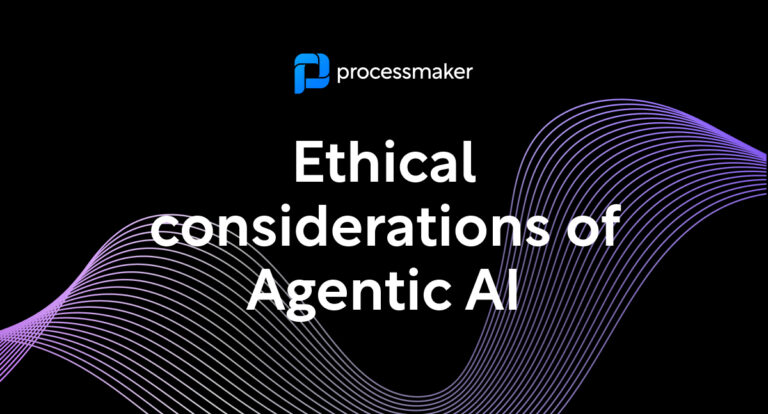The future is digital and the sooner companies shift their approaches to meet this trend, the better off they will be. To keep up with this rapidly-changing landscape, companies need to reexamine and change their structures to support agility. Companies can start doing so by learning about digital transformation and creating a roadmap for its implementation.
Digital transformation involves utilizing data, technology, and software as a means to generate meaningful business insights and conduct operations more efficiently. When used correctly, data can trigger a meaningful shift in the capabilities of a company. This can enable it to connect with consumers in more significant ways. This may manifest in several ways which may include greater choice, more transparency, increased predictability, and overall effectiveness.
A McKinsey report reveals that compared with companies who have not embraced digital transformation, data-driven organizations are 23 times more likely to acquire customers, 6 times more likely to retain customers, and 19 times as likely to be profitable.
Business owners seeking to keep pace with digital transformation must keep several considerations in mind for success. Digital transformation impacts data protection, IT security, contract design, and regulation. Legal issues such as compliance, intellectual property protection, and data security should be top priorities.
Intellectual Property (IP) Law
The key types of IP protections to keep in mind regarding digital transformation are trademarks, copyrights, and trade secrets.
A trademark is a word, name, logo, symbol, or any combination thereof, that serves as a method of identification for goods, products, or services. Trademarks allow prospective customers to weigh the reputation of the producer of the goods or provider of the services.
Copyrights protect original artistic works, such as literature, music, films, software, and architecture. They grant their authors the exclusive right to reproduce and distribute copies, prepare derivative works, as well as perform or display the work publicly. Copyright authors do not need to register their work in order to obtain the initial copyright, which they develop right away under common law, but they must be federally registered in order to be enforced.
A trade secret is a legally protected piece of information that a company keeps internally for protection. These secrets include formulas, patterns, compilations, programs, devices, methods, techniques, processes, etc.
Copyrights
Copyrights ensure that companies do not infringe on any existing copyright law protection for images and videos. If companies use images/videos on their website, communications, or social media postings they should track down the rights holders and make sure that they have permission to use the works commercially. It may be necessary to consult a copyright attorney if any doubt regarding the rights of any works used. If any source code, software, or technology is licensed, contact an attorney to ensure that those resources are being used in accordance to any copyright law.
On the reverse side, companies should seek federal copyright registration on any artistic materials that will be sold or publicized digitally. This includes presentations, advertisements, images, or product designs.
Trademarks
Trademarks are important in any publication or outlet where a business is being identified as a brand. This can be challenging in the digital sense because there are so many components to building a digital brand. Businesses must federally register wordmarks, logos, icons, and similar identifying symbols and then use the “™” or “R” indicator to signify that the business is registered. This is especially critical on websites and all other external platforms to ensure consistency.
Trade Secrets
Trade secrets are crucial when it comes to properly implement digital transformation. When digitizing operational processes and methods, companies are no longer able to keep secrets in a physical file cabinet, so to speak. Instead, they rely on cloud storage, remote servers, and email chains that never disappear.
Contract Law
Enterprise owners or team leaders have to understand the risks that come with digital transformation. The utilization of digital servers and independent software contractors are two such risks.
Considerations to keep in mind are whether to look into encryption software, how to properly train employees about where to store proprietary information, and how to utilize non-disclosure agreements (NDA) to make sure that everything stays in-house.
Compliance
Digital transformation reimagines how businesses think about and engage with customers. Often, this means a focus on how to gather, store, and utilize customer data. This area of data storage is full of murky legal waters that should be traversed carefully.
When implementing a roadmap for digital transformation, your concerns revolving around compliance and Big Data should include:
- Data protection and security
- Data mining and control
- Using data for advertising (data mining/user targeting, etc.)
First, businesses should obtain insurance as soon as they gain valuable user information. Comply with insurance guidelines for how to securely store user data and check in often to make sure data compliance is up-to-date with any policy changes.
Legally, it is imperative that companies draw a clear line between personal and non-personal data to comply with data protection regulations. When storing user information, companies must also comply with all federal, state, and industry-specific regulations. If the business is international, they may want to consult with an international attorney to ensure that they are following all necessary codes of conduct.
In the end, it all comes down to contracts. Companies need to ensure that they have a thorough user agreement that customers agree to every time they enter the company website. The vast majority of consumers will simply scroll through agreements and accept without looking, but they are enforceable nonetheless– within reason.
With cybersecurity concerns about user information storage, consult with third-party software and technology groups to determine how safe any data is from a breach. Come up with an airtight plan working with any internal teams, third-party technology consultants, and IP attorneys to ensure that user privacy is at the forefront of digital transformation.
Another consideration is success. To successfully transform digitally, recognize that the driving force behind a company’s success is its employees. It may be helpful to implement culture shifts to support the changing atmosphere. One example that has proven effective is to teach employees at least one new way of working. This may include continuous learning initiatives, open work environments, or more collaboration. The integration of a more holistic approach may increase your chances of a successful transformation.
Carly Klein is a first-year student at Loyola Law School. A graduate from Boston University with a B.A. in Political Science & Philosophy, she is a Los Angeles native and seeks to pursue a career in IP & Business Litigation.





